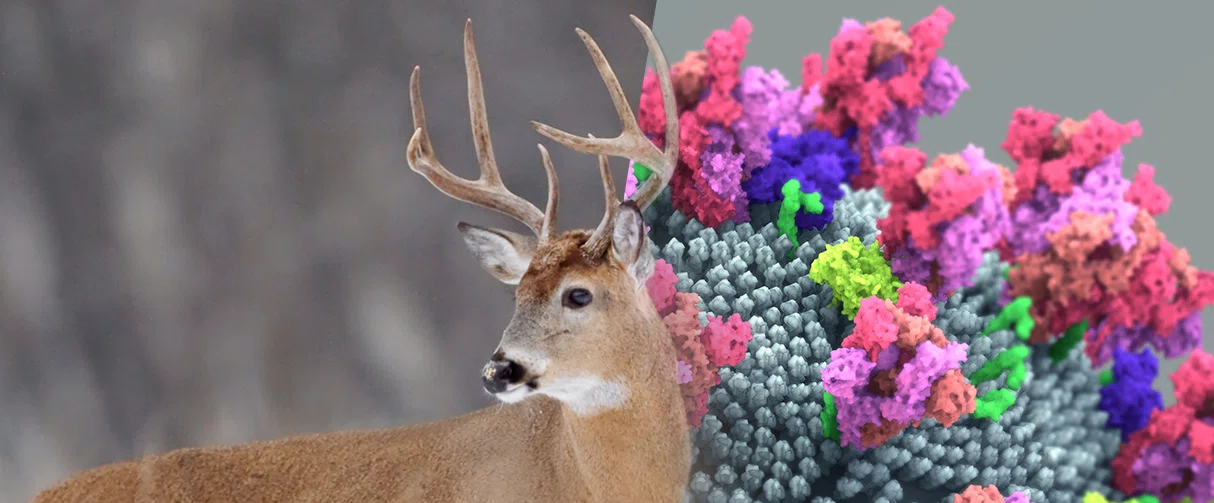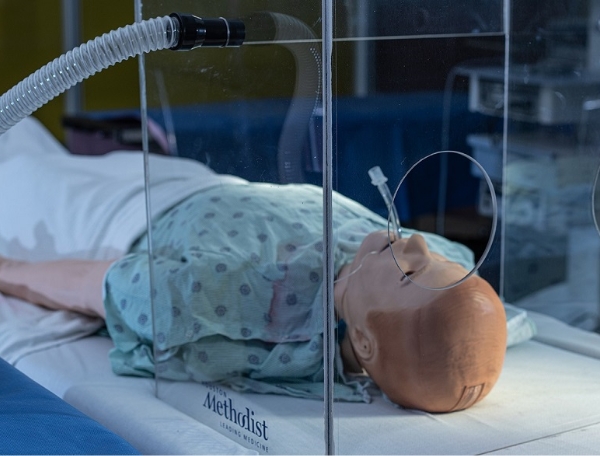


Outcomes Research
Genome sequencing reveals widespread COVID-19 infection in white-tailed deer

Samples from Iowa deer analyzed by Houston Methodist show human-to-deer transmission
Houston Methodist’s renowned SARS-CoV-2 genome sequencing team has partnered on a study led by scientists from Penn State University that revealed 80% of white-tailed deer sampled across Iowa at the height of the 2020-2021 deer-hunting season tested positive for the SARS-CoV-2 virus. Analysis of the virus genome sequences revealed that infections were likely the result of multiple human-to-deer transmission “spillover” events followed by deer-to-deer transmission from April of last year through January 2021.
The discoveries, which were posted this week to the preprint server bioRxiv, suggest that white-tailed deer may act as a reservoir for the virus to mutate and could potentially facilitate evolution of strains that have decreased susceptibility to the current vaccines.
The findings could have a significant impact in Texas because of the peak deer-hunting season now beginning for white-tailed deer. It is currently unknown if deer in Texas harbor the SARS-CoV-2 virus. The researchers are encouraging hunters and those living in close proximity to deer to be vigilant when in very close contact with, handling or field-dressing the animals. Precautions could include now-standard protective measures, such as getting vaccinated against the COVID-19 virus, and wearing gloves and masks.
80% of white-tailed deer sampled across Iowa at the height of the 2020-2021 deer-hunting season tested positive for the SARS-CoV-2 virus
Houston Methodist physician-scientists, led by Randy J. Olsen, M.D., Ph.D., medical director of the Molecular Diagnostics Laboratory and James M. Musser, M.D., Ph.D., chair of the Department of Pathology and Genomic Medicine, received specimens to genome sequence from their Penn State collaborators. These samples were obtained from the Iowa Department of Natural Resources Wildlife Bureau, which routinely surveys deer populations for chronic wasting disease. CWD is a progressive, fatal neurological illness in deer, elk and moose.
Musser and Olsen said their team discovered many surprises in this study. The genome sequencing of these samples done by Houston Methodist was the key to revealing the human-to-deer transmission. Sequencing the genome of each viral sample, the Houston Methodist team found similar genetic patterns were shared between virus mutations in the state’s deer population and the virus variants infecting and circulating among people. They also mapped the geographic location of the deer yielding samples, which suggested infections were occurring across the state as hunting season was revving up.
In addition, the virus genome data revealed evidence for much deer-to-deer SARS-CoV-2 transmission in the Iowa white-tailed deer. The number of infected deer increased over the course of the study, with the greatest increases coinciding with the peak of the 2020-2021 deer-hunting season.
These findings are the first direct evidence of SARS-CoV-2 infection and transmission in any free-living animal species and have important implications for the natural ecology and perhaps the long-term persistence of the pandemic, including potential transmission to other free-living or captive animals or potential spillback to human hosts. As it stands now, a number of other animals are known to be susceptible to being infected by the virus. Among them are zoo animals catching it from their handlers, captive mink exposed to it by farm workers and a few cases of domesticated family pets, such as dogs and cats, infected after close contact with people who had COVID-19.
In the case of mink, researchers in Europe found the infected animals could pass the virus back to people. Although there hasn’t yet been any evidence that deer can transmit the SARS-CoV-2 virus back to humans, the Houston Methodist researchers say this possibility needs further study. As with many infectious microbes, the chances of SARS-CoV-2 becoming a zoonotic infection and evolving in ways that might threaten human health can increase with the growing number of species found to be capable of carrying the virus.
For more information: Multiple spillovers and onward transmission of SARS-CoV-2 in free-living and captive White-tailed deer (Odocoileus virginianus). bioRxiv. (online Nov. 1, 2021) Kuchipudi, S. V., Surendran-Nair, M., Ruden, R. M., Yon, M., Nissly, R. H., Nelli, R. K., Li, L., Jayarao, B. M., Vandegrift, K., Maranas, C. D., Levine, N., Willgert, K., Conlan, A. J. K., Olsen, R. J., Davis, J., Musser, J. M., Hudson, P. J., Kapur, V. DOI: https://doi.org/10.1101/2021.10.31.466677
Lisa Merkl, November 2021








